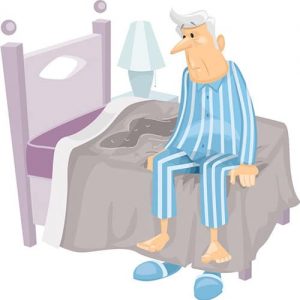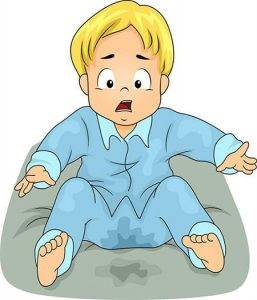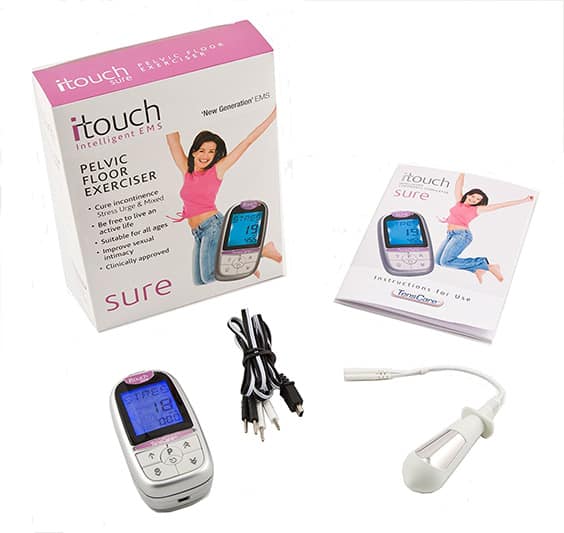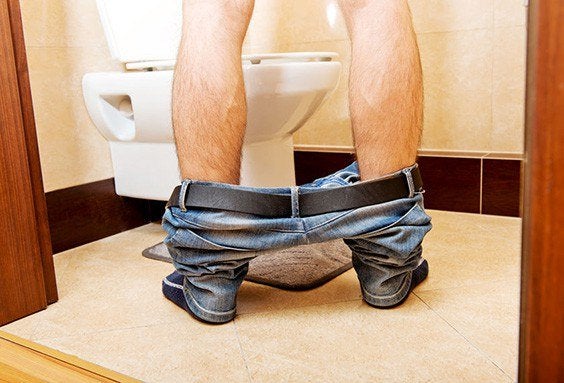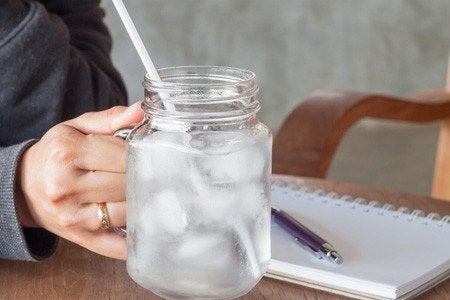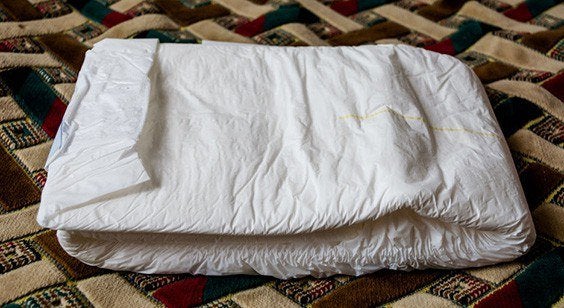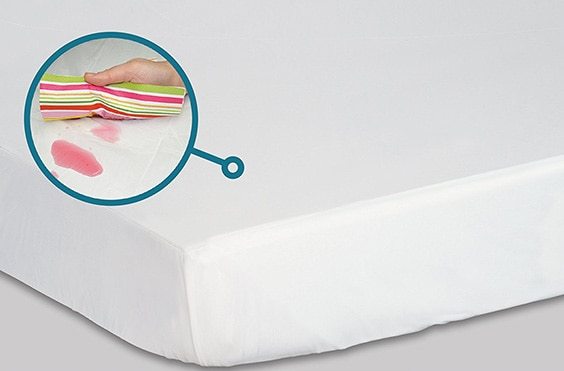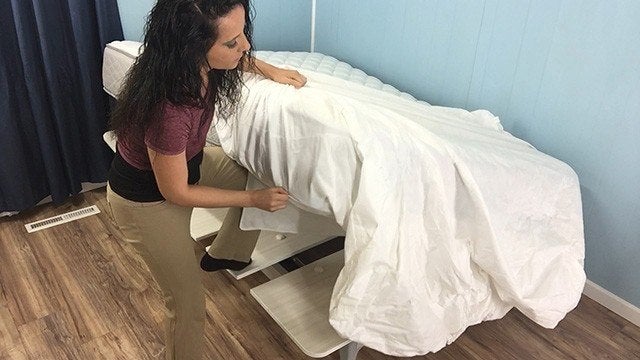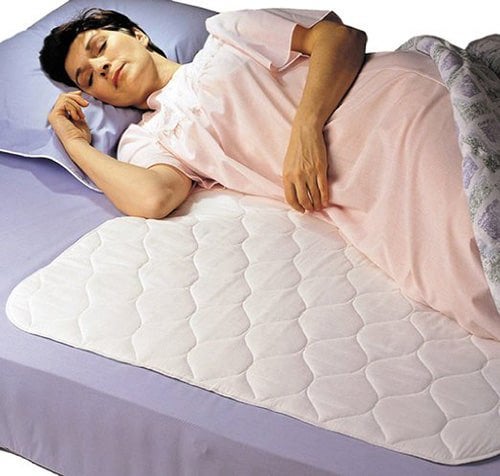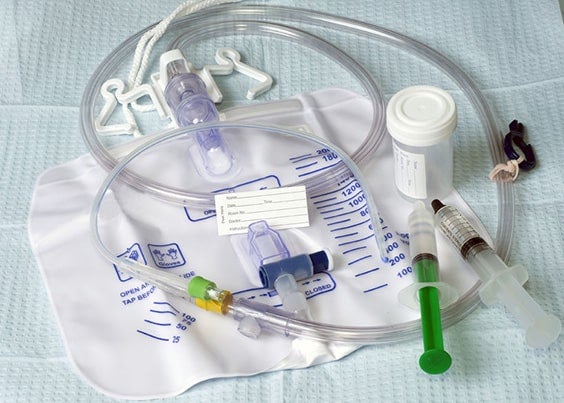Dealing with incontinence and bedwetting as an adult can be a difficult thing, both physically and emotionally. One of the most important things to know is that the issue isn’t all that uncommon. Those who may be experiencing it aren’t alone, and there are things which can be done to both help reduce the frequency of incidents and to help protect important items, like your mattress and bedding.
Causes
There are a number of causes for bedwetting, also called nocturnal enuresis, and not all of them are necessarily medical, though having certain medical conditions can make accidents more likely to happen. It also doesn’t help that it seems to be somewhat hereditary, according to evidence.
• Overactive Bladder
Somewhere around 16 percent of people over the age of 18 suffer from an overactive bladder. Because of this condition, waking up with a wet bed or simply having to frequently get up to urinate can be a real concern.
In the bodies of those with an overactive bladder, urine doesn’t decrease at night as it should. In lucky cases, their bodies will alert them of the need to void their bladder. Sometimes, however, this doesn’t happen, and an accident may.
Even if they do wake up in time, overactive bladder sufferers are more likely to find themselves tired throughout the day because of the nocturia they experienced the night before.
• Hormone Levels
Antidiuretic hormone is something found naturally in human bodies. The job of ADH is to tell the kidneys they need to slow down on making urine, which helps to avoid issues of nocturnal enuresis.
It seems, however, that some people don’t produce enough of the stuff, so their urine production does not decrease in an issue called nocturnal polyuria. This could certainly be a cause for an overactive bladder. It is also a possible indication of type I diabetes.
• Functional Bladder Capacity
Those who don’t experience bladder issues likely have a proper functional bladder or FBC. Some, however, do not. Often, people who suffer from a smaller FBC will say they have a smaller bladder, which isn’t quite accurate. Their bladder is the same size, they simply cannot hold a normal volume of urine, so it fills much faster.
• Detrusor Muscles
Another issue can be overactive detrusor muscles, which are the muscles inside the bladder. If these aren’t doing what they’re supposed to be doing, nocturnal enuresis is far more likely to happen. In most nocturnal enuresis patients, between 70 and 80 percent, this has been the cause of their problem.
It doesn’t help that so many different, everyday items, can exacerbate the issue. Things such alcohol and caffeine are notorious for causing problems with the detrusor muscles.
Side Effects
Certain medications can also be attributed to causing nocturnal enuresis. Drugs such as insomnia medications and some psychiatric medications can all be an issue.
Secondary Effects
In some cases, nocturnal enuresis is merely a symptom of a larger issue. Prostate problems in men, as well as pelvic organ prolapse in women, can lead to bedwetting. So, can diabetes, neurological disorders, urinary tract infections, various forms of cancer and sleep apnea. Anyone suffering from nocturnal enuresis should be sure to visit a doctor to make sure they aren’t suffering from any of these less-obvious issues.
Hereditary Concerns
There is some evidence that bedwetting may be a hereditary issue, With this in mind, consulting with family to determine any instances of bedwetting can be a first step toward figuring out an issue. An intensive review of documentation collected on the genetics of bedwetting was performed in 2001 by doctors in Germany. They concluded that, indeed, it seems as though it is very likely bedwetting can be inherited.
One study showed a 77 percent chance of becoming a bedwetter if both of someone’s parents are bedwetters. If only one was, the chance dropped to 40 percent. The study also showed these problems can carry on into adulthood.
Seeking Medical Advice
Before beginning any major life changes, it’s important to get the advice of a doctor. Should there be any underlying issues causing the incontinence, a medical professional should be able to examine and diagnose a patient to look for the root cause.
In order to be prepared for this event, and to make sure the best diagnosis is given, patients should gather the right sort of information about their bodies. Leading up to this event, a bladder and bowel diary could be helpful. Tracking the times and types of movements over a two-day period can provide great information about the type of incontinence a patient may have.
Any lists like this should include toilet habits, a list of foods and drinks which were confused, how many trips one took to the bathroom during the night, the strength of the flow of urine, and the cause of any accidents which may have occurred.
By using this information, a patient will not only be providing vital information to their doctor, they will also have a better understanding of their own bodies and they way they work together and react to what happens in their lives. In doing this, a patient is more likely to notice what is and is not normal for their own body.
Finding the right solution often takes asking the right questions, so a patient shouldn’t be afraid to ask them. Doctors exist to help people feel better, so asking questions should never be discouraged.
Making it Better
Fixing nocturnal enuresis isn’t impossible. In some cases, it isn’t even particularly hard. There are a few things you can do on your own to help, and some medications can be of use. Should these not work, there are a couple surgical methods which may, but they are rather intrusive and should be considered as a last resort.
— Body Training
A few things can be done to possibly help avoid wetting the bed at night. First, and probably the easiest, is to work the Kegel muscles. These muscles, positioned near the urethra, can be used to stop the flow of urine. Stronger Kegel muscles can also lead to less of a chance of nocturnal enuresis as they are more likely to keep urine from escaping.
Strengthening the Kegel muscles is as simple as forcefully stopping the flow of urine and holding it in for longer periods of time. By doing this, the muscles are used more and should eventually become stronger.
Another method is to use a bedwetting alarm. This will alert the sleeping person of any wetness which may be occurring, allowing them to quickly get up to use the bathroom and letting their body know when incidents happen. With this information, the body may begin to wake up before it happens, giving the sleeper time to make it to the restroom before any problems occur.
A similar technique is to use a randomly set alarm for different points during the night. Getting up at random times to urinate keeps the body from learning to urinate at a specific time, which should, in theory, keep it from voiding itself on a set schedule while sleeping.
Doing the opposite during the day can also be quite successful. Taking the time to figure out one’s urination schedule is an important first step. After working this out, add 15 minutes to the time. Eventually, if this schedule is kept, the time can be increased again and again, training the body to hold it longer and longer.
— Medication
Taking medicines won’t necessarily fix the issue, but it can make it less likely for nocturnal enuresis and nocturia to occur. A diuretic, for instance, can help make sure the bladder is empty at bedtime be forcing urination throughout the day.
Another type of drug, an anticholinergic, can help relax the bladder so it will expand and hold more urine. This should also keep any detrusor muscle issues from being too frequent. There are several of these and they work in different ways and each have different side effects. In situations of low ADH levels, taking a hormone pill could be of use.
To be honest, there are medications for nearly every type of incontinence under the sun. No matter what type a patient may be suffering from, there’s a fair chance somebody has already come up with a drug to help keep it from happening.
— Surgery
Surgery to combat incontinence and related night time issues is not a matter to take lightly. Each of the procedures is rather invasive and should be done only after much research and consideration of all other options.
The two most invasive are clam cystoplasty and detrusor mectomy. Each of these requires direct surgical contact with the bladder. For the former, a piece of the intestine is removed and placed after a cut is made to open the bladder. With this, the bladder is essentially made larger in order to allow for more urine.
In a detrusor myectomy, part of the muscle surrounding the bladder is removed with the goal of strengthening contractions of the bladder and, simultaneously, making them less frequent. Fewer detrusor issues should leave to fewer instances of bedwetting and nocturia.
The other procedure, sacral nerve stimulation, is a little more scientific. By this method, the sacral nerves are stimulated, causing the detrusor muscles to chill out. Calm detrusor muscles make for fewer issues of nocturnal enuresis and is a good option for people suffering from moderate to severe incontinence.
— Additional Treatments
There are a couple more treatments in the testing phase right now, and both seem to be promising. Botulinum Toxin A is a material being injected directly into the detrusor muscle walls of the bladder using a flexible cystoscope. Apparently, it is reported to last between six and nine months and have few side effects.
Laser acupuncture is another process undergoing testing. It’s being used to treat multiple medical problems, but has been found to have some effect on helping stop issues associated with bedwetting.
— Just for Women
One cause of incontinence in women is a weak pelvic floor muscle. This is something which can be measured and strengthened using multiple techniques. This is especially helpful for women who suffer from stress urinary incontinence, an issue which affects both men and women. SUI is basically what happens when something heavy is lifted and it causes urine to leak.
Using methods like pelvic floor stimulation can combat SUI. The process involves stimulating the nerves and muscles of the pelvic floor and the bladder. A tampon-like sensor is inserted into the vagina and causes the muscles to either tighten or contract, forcing them to be used and, thus strengthening them.
The process isn’t painful, but it can certainly be a big help. Another tool, called biofeedback, can be used in conjunction with this and with medical staff. Sensors are used to determine which muscles in the pelvic floor are being used, and the medical personnel will use that information to create a plan of sorts to help strengthen the muscles.
While previously this was a technique requiring some sort of medical assistance, there are now machines which can be used from a patient’s home, allowing them to see which muscles they are and aren’t using and then giving them the opportunity to adjust as needed.
Tips and Tricks
One of the best ways to combat incontinence and its associated problems is to keep it from happening in the first place. If that isn’t always possible, it’s important to make sure important and expensive items are protected from any chance of being damaged by urine.
• Avoiding the Issue
If there isn’t any urine in the body, it can’t be released. That’s the thought behind this first set of tips. First and foremost, avoid drinking any liquids at a certain point in time before bed. This will vary for each person, and should be tested. Alternatively, or perhaps in conjunction with, urination before going to bed will help to make sure the bladder is empty.
One suggestion is to do the double voiding of the bladder. With this technique a person would urinate, then do something else, such as brushing their teeth, then urinate again just before lying down. Again, an empty bladder is less likely to have issues in bed.
The Kegel exercises can be a help here, as well. While the goal with those isn’t an empty bladder, working to strengthen the bladder will have a greater effect on a bladder which is emptier than normal.
• Don’t Make It Mad
What is put into the body can have a great effect on what tries to come out of it. Avoiding items which might irritate the bladder is pivotal to maintaining good bladder health and keeping from being incontinent. Foods and drinks such as alcohol, apples, chocolate, citrus, coffee, honey, tea and tomatoes are all capable of irritating the bladder.
As a side note to eating healthy, this will also maintain body weight. The heavier someone is, the more weight they are putting onto their bladder, which can lead it to leak. Eating right, exercising and generally keeping healthy is a great way to keep from becoming incontinent.
Another irritant is nicotine. Smokers suffering from incontinence may just find their dirty habit is what is causing it. Nicotine and smoke are terrible triggers for the issue, and quitting quickly can lead to some normality after a time.
• Fluids
While drinking too much liquid before bedtime can lead to a much higher risk of running into nocturnal enuresis overnight, that doesn’t mean it should be avoided during the day. In fact, avoiding liquids can actually increase the chances of issues occurring.
Not drinking enough water, for instance and especially, will lead to urine which is more concentrated. Concentrated urine is very likely to irritate the bladder from the inside which will cause additional bathroom trips to be necessary. Additionally, having less fluid can promote bacteria growth which can also trigger issues with incontinence.
This is yet another reason why drinking six to eight glasses of water a day is so important. Not only does it help keep the body hydrated, that hydration works to keep the bladder doing everything it needs to do as well, which should lead to fewer changes of nocturnal enuresis and nocturia.
• Proper Bowel Movement
Don’t think that just because urine comes from the bladder and not the bowels that the bowels don’t have an effect on the bladder. Being constipated can absolutely lead to issues like nocturnal enuresis. Having a full bowel can potentially put additional pressure onto the bladder. Sitting on the toilet for extended periods of time also isn’t good, and the same can be said for straining.
To maintain proper bowel movements, it is important to eat good foods and drink good amounts of water. Avoiding constipation is really as simple as that. Additionally, it may be a good idea to re-evaluate the posture you use when defecating in order to make sure the best and healthiest method is being used.
• Being Prepared
Sometimes accidents happen, though, and taking precautions doesn’t hurt. There are a number of products out there which can be of use for this situation.
— Diapers
Absorbent briefs and adult diapers can go a long way toward keeping sheets and mattresses dry. It’s a great way to sleep with an ease of mind and the least amount of mess in the morning, if there has been an incident during the night. Simply toss in the washer or garbage, depending on whether or not you have disposable ones.
— Vinyl Covers
If there are major concerns, plastic sheets or vinyl covers and such can be used, but these can be uncomfortable and embarrassing. However, they are the most practical. They’re super affordable and can be easily wiped own each day, or after an incident. If you go with an encasement type, with a zipper enclosure, they even protect from dust mites and bedbugs.
— Protectors and Covers
Nowadays there are mattress covers and protectors in all sorts of varieties. Not all of them are great, but they’re all likely to work. Some of the best are completely waterproof and can’t even be felt due to the soft terry material most are made from, making them perfect to use to protect a mattress not only from possible nocturnal enuresis incidents but from any sort of accidents or spills which may happen.
You may want to read: Best Mattress Covers You Can Find
— Pads
If you don’t move too much in your sleep, a bed pad is a good option. It’s a simple square or rectangle waterproof pad that slips underneath your body right around the middle of the mattress, where the bulk of the liquid would be. It goes right on top of your sheets so need to wash anything except the pad itself.
— Catheter
Another alternative, though perhaps not the most comfortable one, is to use a catheter. They used to be quite a pain to install, but now there are certain types which become quite slippery when wet, allowing for easier insertion. A catheter does need to be prescribed, as a doctor will suggest whether or not it is something which is necessary.
The Aftereffects
Using these products, and having incontinence in general, can lead to certain skin conditions such as rashes. The absorbent briefs can leave wetness on the skin or the towel or waterproof covers can cause urine to stay in contact too long. Rashes are no fun.
There are quite a few products out there which are designed to specifically combat these issues. Using them can go a long way toward making sure anyone suffering from these issues stays comfortable and doesn’t suffer any more than what can’t be avoided.
From lotions to cleaning cloths, a multitude of products are out there, some which can even be carried on the go should something happen while out and about.
You Are Not Alone
Dealing with nocturnal enuresis, nocturia and other incontinence-related issues is a tough thing to do. It can be embarrassing to talk about, and, when it happens, it can be embarrassing even if no one else is around.
But it’s not an uncommon event, and it’s not because you did anything wrong. There are steps you can take to combat the issue, and if those don’t work, there are further steps you can take to make sure you’re protecting yourself and the things you cherish.
Conclusion
I hope within this article you found something you can use to help yourself or someone you love deal with this exceedingly difficult issue. You are not alone, there are millions of people out there suffering from the same issues. If they can do it, so can you.
Figure out what works for you and stick with it. If you have a story to share or a question to ask, please post in the comments below. And if you enjoyed this piece, feel free to share it with your friends and family who may benefit from the information.
You may want to read: The Best Question: Over or Under Linens for Electric Blankets?

